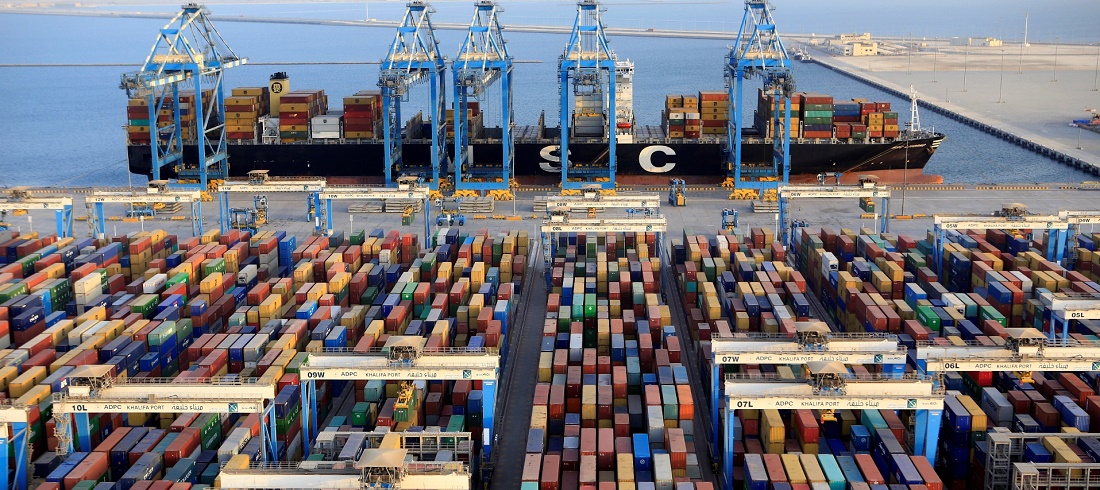
Brazilian imports via containers soar in July
Aug, 31, 2022 Posted by Gabriel MalheirosWeek 202235
In July, Brazilian imports via containers grew 5.2% compared to July 2021, according to data recently released by Datamar’s Business Intelligence team. These figures indicate that the downward trend in place since the beginning of the year is finally starting to be reverted. Despite this, in 2022 year-to-date, imports are still 12.3% below 2021.
It is worth remembering that logistical problems such as lockdowns in important port cities in China and the congestion of American ports dammed up cargo imported by Brazil at its origins in the first half of the year. These held-back cargoes, approximately 226,059 TEUs, arrived in July, pushing up the data on container imports.
See below the month-on-month and YTD container import data for the first seven months of the year. The information is from DataLiner.
Brazilian container imports (month-on-month) | Jan – Jul | 2019 – 2022 | TEUs
Source: DataLiner (click here to request a demo)
Brazilian container imports (Year-to-date) | Jan – Jul | 2019 – 2022 | TEUs
Source: DataLiner (click here to request a demo)
DataLiner data show that in the year-to-date results for the first seven months of 2022, imports from Argentina grew (+25.5%), Morocco (33.3%), and Costa Rica (+403.2%) compared to the same period of last year. On the other hand, imports from China (-10.9%), the United States (-21.7%), Russia (-57.9%), and Ukraine (-85.4%) fell, among others, in the same comparison period. The decrease in imports from the two latter examples reflects the conflict between the two countries.
Exports
Brazilian exports via containers exhibited a behavior contrary to imports and decreased 6.3% in July compared to the same of 2021, as can be seen below:
Brazilian container exports (month-on-month) | Jan – Jul | 2019 – 2022 | TEUs
Source: DataLiner (click here to request a demo)
As for the first seven months of the year (YTD), the drop was only 3% compared to the period from January to July 2021. See more below:
Brazilian container exports (Year-to-date) | Jan – Jul | 2019 – 2022 | TEUs
Source: DataLiner (click here to request a demo)
Despite the drop in the total volume exported via containers, some countries received an interesting larger amount of Brazilian exports from January to July 2022. For example, DataLiner data indicate that Brazil exported to Iraq a volume 91% greater in the first seven months of 2022 compared to the same period in 2021.
The volume of exports grew by 21.7% to the United Arab Emirates, 51% to Egypt, and 21.6% to Argentina.
On the other hand, not surprisingly, shipments to Russia (-57.3%) and Ukraine (-78.5%) fell. In addition, the United States (-6.5%) and China (-11.7%), the two leading nations that serve as destinations for Brazilian products in containers, also registered a drop.
Market evaluations
The Brazilian Central Bank released an August 26 bulletin containing projections for the coming months, including that the Brazilian trade balance will close the year with a surplus of US$68.06 billion. The exchange rate should close the year at BRL 5.20 per dollar, according to the economists consulted by the Central Bank.
On Wednesday, August 31, the prestigious higher-ed institution Getúlio Vargas Foundation (FGV) announced that its Economic Uncertainty Indicator (IIE-Br) dropped 4.2 points in August to 116.6 points, the lowest level since April this year (114.9 pts.).
The Commerce Confidence Index (ICOM) by FGV IBRE rose 4.3 points in August, from 95.1 to 99.4 points. In addition, the quarterly moving averages indicator increased 2.0 points, marking the sixth straight positive outcome.
“Trade confidence increased once again in August. Contrary to what had been happening in previous months, this month’s gain was entirely influenced by the improvement in expectations. The slowdown of inflation, government stimulus measures and an increase in consumer confidence will all help to boost the morale of entrepreneurs in the industry in the coming months. However, despite being more optimistic, this has not been evident in recent assessments, as demand indicators have continued to slip for the second straight month. For the next several months, positive outcomes are still feasible, but prudence is advised given the still fragile macroeconomic context and the possibility of some oscillation owing to the proximity of the elections,” comments Rodolpho Tobler, an economist at FGV IBRE.
-
Shipping
Apr, 20, 2020
0
Maersk further adjusts shipping capacity on route between Far East and East Coast South America
-
Other Cargo
May, 03, 2023
0
Brazil’s machinery and equipment sector exports surge 24.2% in March
-
Economy
May, 20, 2024
0
Brazilian exports to Russia triples in April
-
Ports and Terminals
Sep, 19, 2024
0
Porto do Itaqui Implements Advanced Monitoring System to Enhance Security Operations

